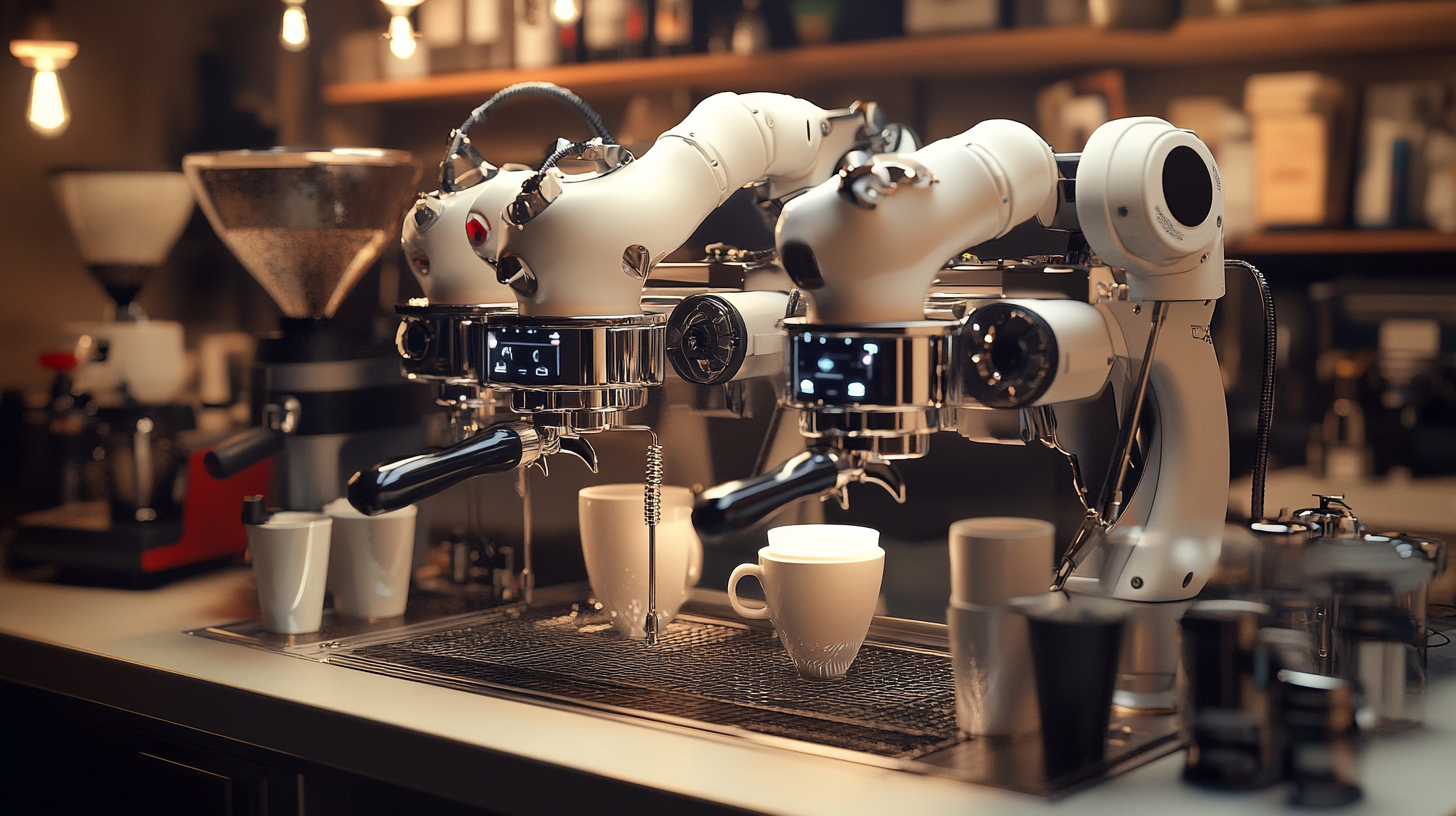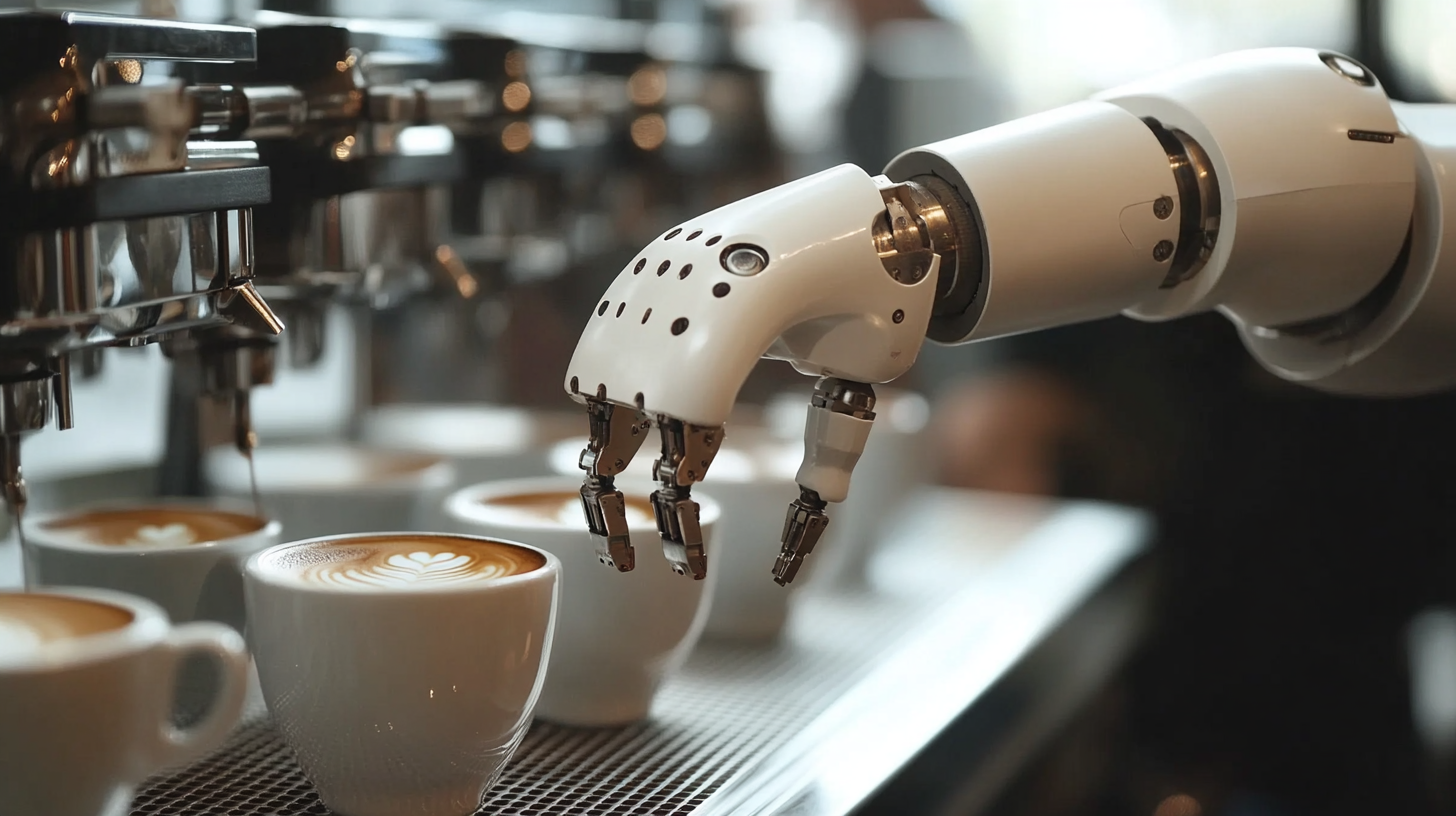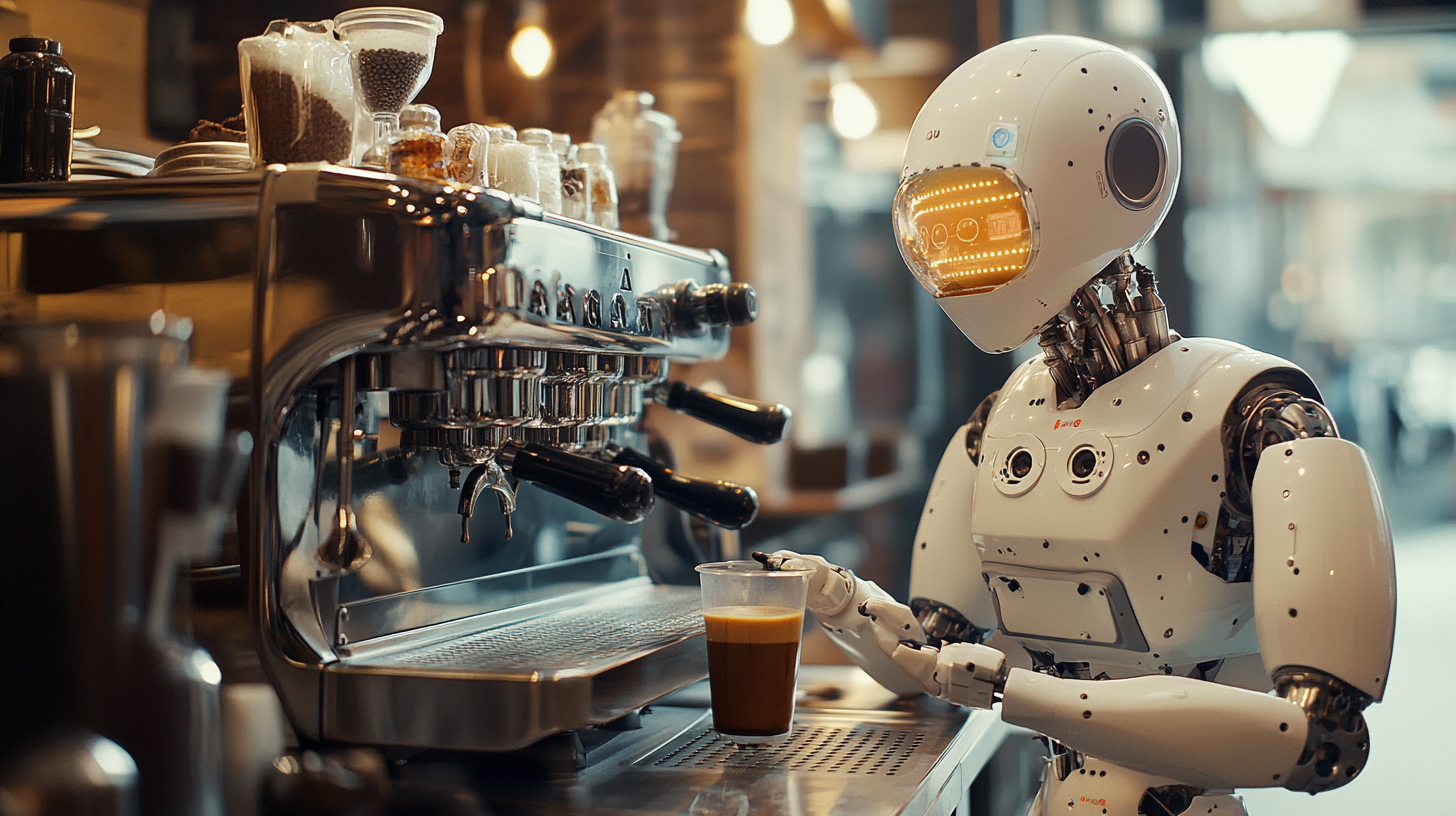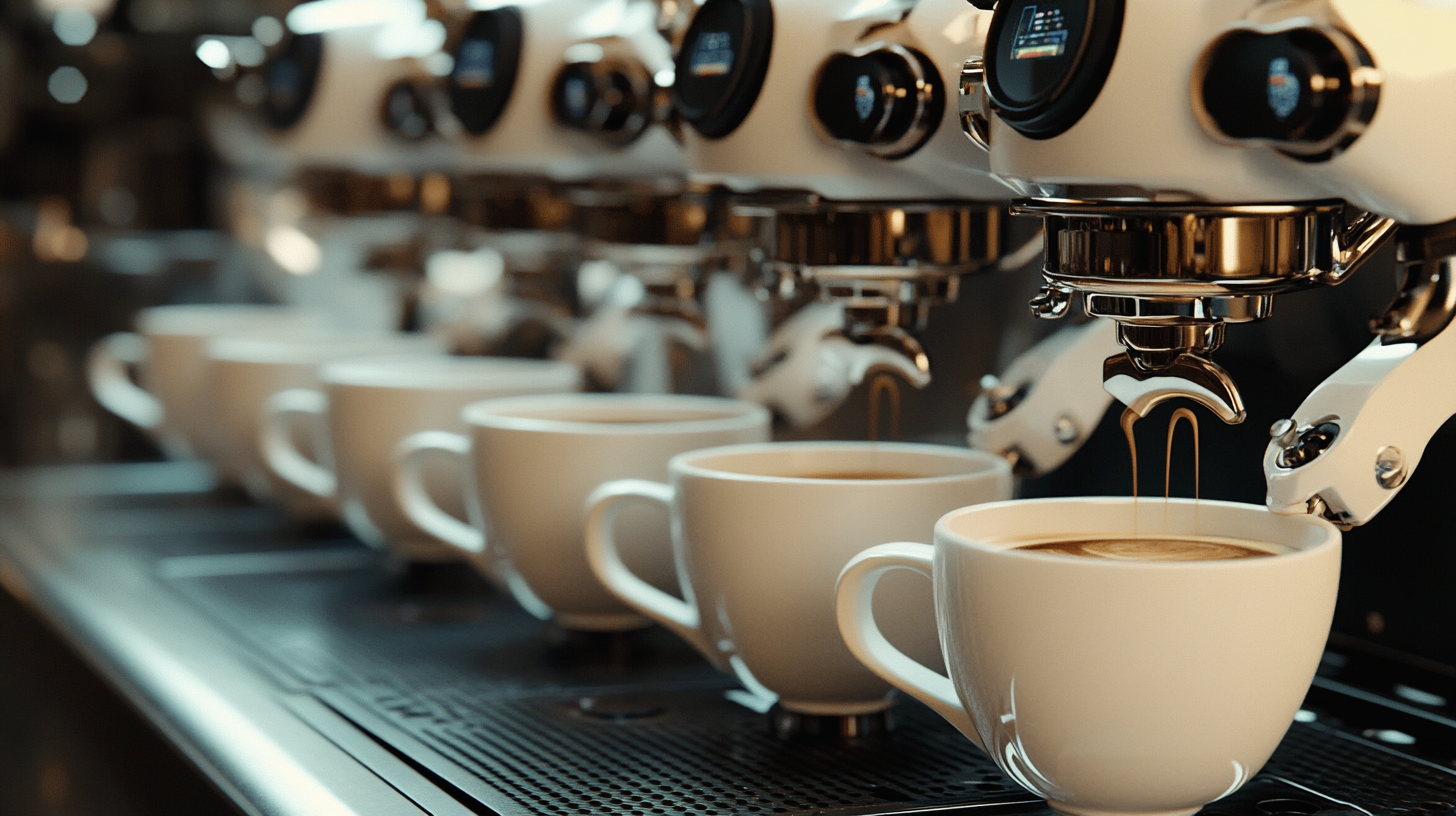In recent years, the coffee industry has begun to witness a remarkable transformation driven by advancements in technology. The emergence of robotic baristas has not only redefined how coffee is prepared and served but has also sparked a conversation about the future of automation in food and beverage industries. As consumers become more accustomed to the convenience and consistency offered by machine-made beverages, the phrase "Robot Makes Coffee" is becoming a common sight in cafes and coffee shops around the world. This shift towards automation promises to enhance efficiency while catering to the growing demand for specialty coffee.
As we explore the evolution of robotic baristas, it is essential to consider the innovative designs and sophisticated technologies that have allowed these machines to mimic the skills of a human barista. From precision brewing techniques to personalized drink orders, robotic systems are revolutionizing the customer experience in unexpected ways. This blog will delve into how automation is not only improving service speed but also maintaining the quality and artistry associated with coffee-making, ultimately brewing a future where technology and tradition coexist harmoniously.

The journey of coffee brewing has been profoundly shaped by advancements in technology, transitioning from traditional manual methods to an era of automation. In its early days, brewing coffee was an artisanal craft, with methods such as boiling, grinding, and percolating employed by skilled baristas. Each cup was distinct, influenced by the barista's technique and the freshness of the ingredients. However, this hands-on approach often meant inconsistencies, as the quality of coffee could vary significantly between different brews and different coffeehouses. As time marched on, innovations began to emerge, transforming the coffee brewing landscape. The introduction of drip coffee makers in the mid-20th century marked a pivotal shift, allowing consumers to brew coffee with minimal effort while ensuring a more uniform flavor. This trend quickly evolved into more complex machines resembling today's espresso machines, integrating pressure controls and precise temperature settings. These machines laid the groundwork for the next revolution in coffee preparation. Today, the rise of robotic baristas is at the forefront of this evolution. Automation is not just about speed; it also promises precision, consistency, and enhanced customer experience. Robots equipped with sophisticated algorithms can replicate intricate brewing techniques, ensuring every cup meets rigorous standards. This futuristic approach allows human baristas to focus on creativity and customer interaction while leaving the mechanical aspects of brewing to machines. The fascinating blend of technology and tradition continues to redefine how we enjoy coffee, shaping the future of this beloved beverage.

The coffee industry is witnessing a transformative shift with the rise of robotic baristas, a trend that is redefining how coffee is brewed and served. Recent reports from the National Coffee Association indicate that over 60% of Americans now drink coffee daily, catalyzing an increased demand for efficiency and quality in coffee service. Robotic baristas are stepping in to meet this demand by harnessing advanced automation and artificial intelligence. Their ability to brew perfect espresso shots with precision not only saves time but also enhances the consistency of every cup served.
Innovations in robotic technology are rapidly evolving, changing the landscape of coffee shops and cafes. Companies like Cafe X and Argo AI are paving the way with machines capable of handling orders and crafting intricate drinks in minutes. According to a recent study by Mordor Intelligence, the global market for coffee automation is expected to grow at a CAGR of 20.42% from 2021 to 2026. This growth is likely driven by an increasing consumer preference for contactless services and a desire for unique coffee experiences, which robotic systems can deliver.
Moreover, the integration of data analytics within these robotic systems allows for personalization that was previously unattainable. By analyzing customer preferences in real-time, robotic baristas can tailor each beverage to individual tastes, ensuring a level of customization that keeps customers coming back. The rise of these automated systems not only enhances operational efficiency but also sets a new standard for customer interaction in the coffee industry, heralding a future where robotics play a crucial role in our daily caffeine ritual.

In recent years, the coffee industry has experienced a technological renaissance, largely driven by advances in artificial intelligence. AI is not merely streamlining the brewing process but also enhancing the overall experience for consumers. Robotic baristas equipped with machine learning capabilities can now tailor each cup of coffee to individual preferences, ensuring optimal taste and enjoyment. By analyzing vast amounts of data, these intelligent systems can adjust brewing parameters such as temperature, grind size, and extraction time to create a perfect brew that caters to a diverse range of palates.
Moreover, AI-powered coffee machines are beginning to offer personalized recommendations based on users' previous choices and taste profiles. This level of customization transforms the experience from a simple transaction to an interactive journey where consumers feel genuinely engaged. The ability for these machines to learn and adapt means that every visit can hold the promise of something new, making coffee-drinking not just a routine, but an exciting ritual.
As smart technology evolves, even the aesthetics of coffee-making are enhanced. Users can enjoy visually appealing presentations as AI-driven systems promise precision in latte art and pouring techniques. This blend of technology and sensory experience is reshaping consumer expectations, merging convenience with artistry. In this era of automation, coffee lovers can look forward to a future where their brews are not only expertly crafted but are also infused with a touch of personalized flair.

The integration of robotic solutions in the coffee industry presents both significant challenges and promising opportunities. One of the primary challenges lies in the initial investment and maintenance costs associated with advanced robotic systems. Many coffee shops and cafes may hesitate to adopt these technologies due to the high upfront expenses and the need for ongoing technical support. Moreover, the human workforce could feel threatened by automation, leading to resistance from employees worried about job security. Striking a balance between human roles and robotic assistance becomes crucial as businesses navigate this new landscape.
However, the opportunities afforded by robotic baristas are substantial. For instance, companies like Eversys are at the forefront of innovation, delivering robotic coffee solutions that not only enhance efficiency but also maintain high quality in coffee preparation. These systems are designed to adapt to individual customer preferences, showcasing how automation can elevate the customer experience. In Japan, the utilization of remote-operated robots by individuals with disabilities highlights a groundbreaking approach that transforms societal challenges into technological opportunities. This integration of robotics not only caters to a growing demand for service automation but also incorporates inclusivity into the workforce.
As technology continues to evolve, the possibilities for robotic coffee solutions are expanding. With advancements in AI, future robotic baristas may become even more sophisticated, seamlessly blending human touch with automated precision. The food and beverage industry is witnessing a revolution, and the rise of robotic baristas is a testament to the potential for automation to redefine how we experience coffee culture. Embracing these changes while addressing the accompanying challenges will be essential as we brew a future where technology and tradition coexist harmoniously.
As the coffee culture continues to flourish, coffee shops are faced with a crucial question: how much of the brewing experience should remain human, and how much should be automated with the rise of robotic baristas? The increasing integration of technology in cafés raises an intriguing debate between the warmth of human interaction and the precision of robotic operations.
On one hand, the human touch is what often makes a coffee shop a beloved community hub. Baristas not only craft beverages but also create connections with customers, engaging in conversations that enhance the overall experience. This social aspect of coffee drinking cannot be underestimated; it fosters a sense of belonging and personal connection. A skilled barista can read the mood of a customer or surprise them with recommendations that a machine simply cannot replicate.
Conversely, robotic baristas bring an unmatched level of consistency and efficiency. With precise measurements and programming, these machines can consistently produce high-quality coffee, ensuring that every cup meets exacting standards. Moreover, they can operate under high-demand conditions without fatigue, effectively managing long queues and peak hours, which can prove challenging for human staff. This precision ensures that every latte, cappuccino, or espresso is crafted perfectly every time, appealing to customers who prioritize quality and consistency.
The future of coffee shops may not necessarily favor one side over the other; instead, the blend of human touch and robotic precision might create a new paradigm in coffee service. By finding the right balance between automation and the personal interaction that makes each visit special, coffee shops can evolve into spaces that honor tradition while embracing innovation.